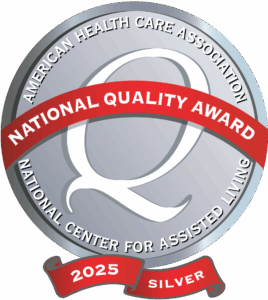As members of the Baby Boomer generation (those born between the years 1946 through 1964) enter their “Golden Years”, lifetimes of challenging work and dedication are paying off. These seniors can enjoy the fruits of all their labor by traveling, being with family and enjoying hobbies. In many cases, a new career may be unfolding as their next chapter. Suffice it to say, this colorful and engaging generation remains busy and productive with age.
Having a healthy memory and mind is vital for anyone who is focused on keeping active and busy, and is even more important as that person gets older. The human brain changes during the aging process and these changes can create challenges. The good news is that these challenges can be met and overcome in most cases. Today, we would like to share some memory care tips for Baby Boomers:
- Stay physically active. Physical activity increases the blood flow to your entire body, and that includes the brain. The Department of Health and Human Services has recommended that we enjoy some type of moderate (about 2 and a half hours) or vigorous (75 minutes) aerobic activity spread throughout our week.
- Stay mentally active. Activities that stimulate you mentally will help your brain stay in shape and can help to ward off symptoms of memory loss. A few suggestions might be to play board games, do crossword puzzles, use a map when traveokay soling (instead of the GPS), or get involved in your community.
- Stay social. Being socially involved can help to keep stress and depression from weighing us down. And both issues can affect your memory capabilities.
- Stay healthy. Sleep well and eat a healthy diet. Each of these healthy habits are particularly good for your brain. Sleeping for 7-9 hours a night, eating non-processed foods as much as possible and drinking plenty of water are all helpful tips for memory care.
- Stay in touch with your doctor. Follow your doctor’s recommendations for any medical conditions you may have. Managing blood pressure and Type 2 Diabetes could be an important step in fending off symptoms of memory loss. Your doctor has your best interests at heart and can help you stay in good health, which will directly affect your brain and your memory in a positive way.
In the case where additional assistance is warranted, getting information regarding the services of a memory care community can be helpful.
If you or your loved one are already in a memory care community, you are aware of the social and sensory stimulation programs implemented to foster memory care. Art and music classes or stimulating games and crafts are often part of these programs and can be tremendously helpful in stimulating the cognitive abilities of a Memory Care resident. Our communities offer specialized team members trained in providing supervised care 24/7 for residents dealing with cognitive challenges, helping to ensure not only their safety and security, but to foster an enriching life for them as well.
Memory Care neighborhoods are “communities within communities.” A Memory Care neighborhood provides enhanced safety, specially trained staff and by offering support programs and activities of specific benefit to those with cognitive challenges. These neighborhoods use thoughtful designs and environmental cues to increase autonomy as residents navigate through their day, aiding in information processing, successful navigation, and developing a sense of confidence.
At American Senior Communities, we have the utmost respect for those living with dementia diagnoses and we understand its impact on those who live with these challenges. We provide person-centered, wellness-based care in our Memory Care neighborhoods, and strive to provide an excellent quality of life for those living with challenges associated with Alzheimer’s and related forms of dementia.
For more information on Auguste’s Cottage Memory Care click here.
For more information on our Assisted Living Memory Care Apartments click here.




